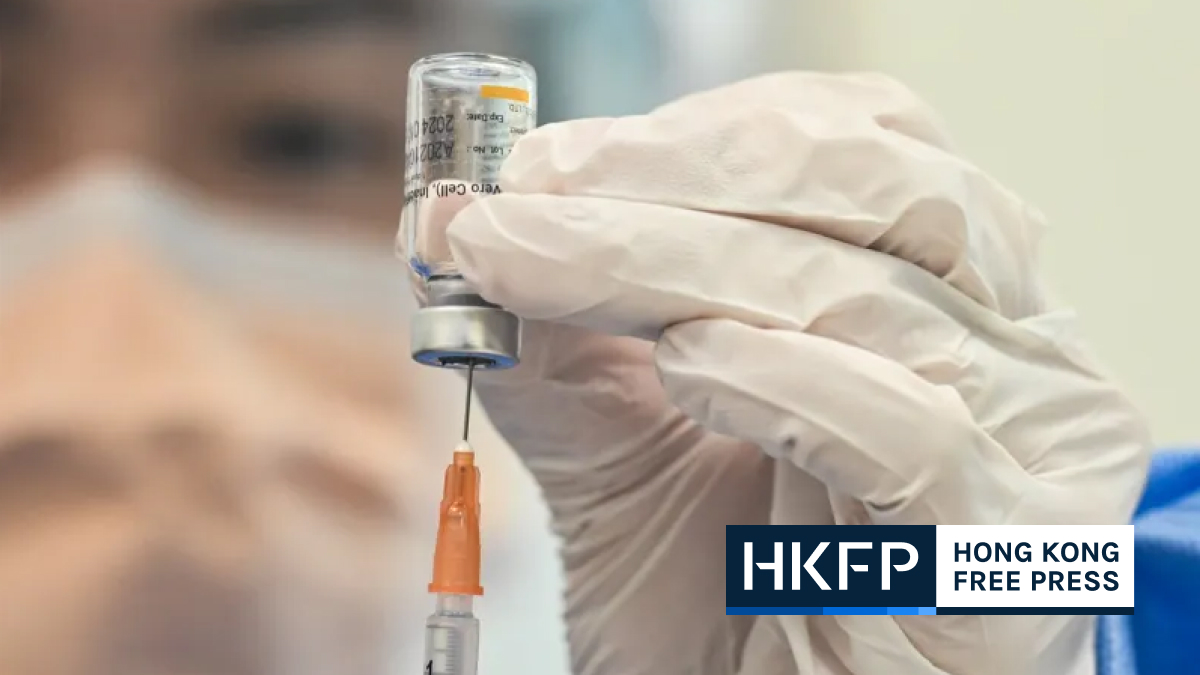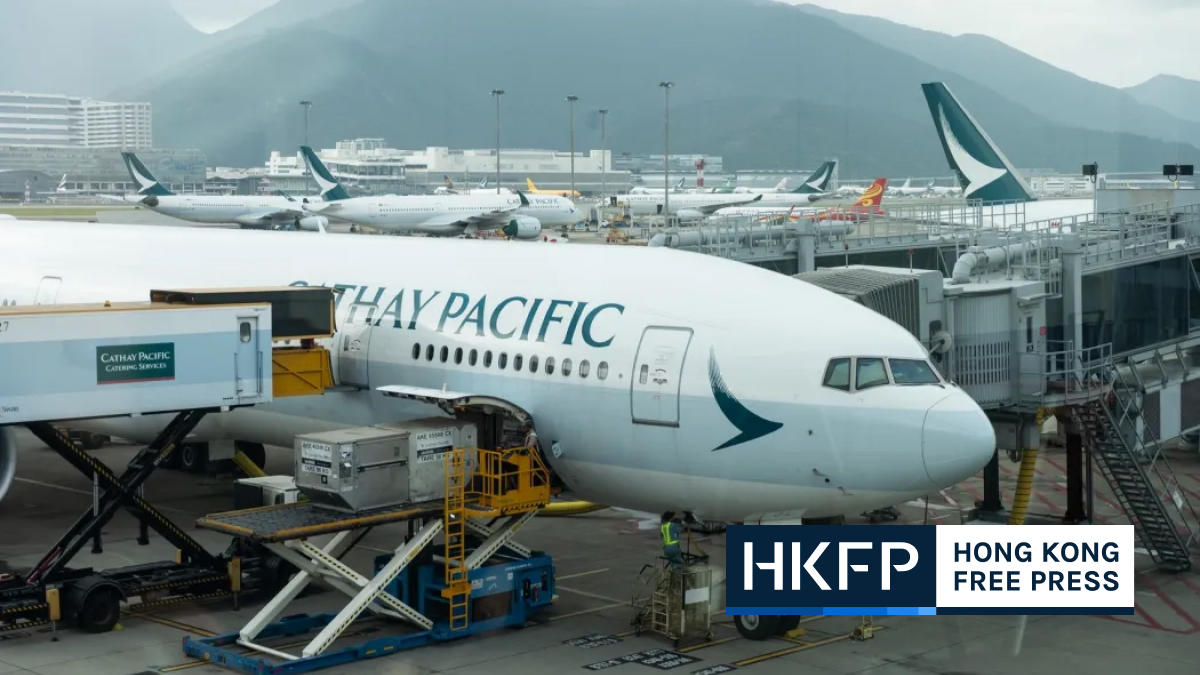On February 26, 2021, Hong Kong launched its free mass vaccination programme, more than a year after the coronavirus pandemic began in the city. HKFP presents some basic questions and answers about the vaccines and the logistics of the programme. Last update: 21 January, 2022.

See also: HKFP Guide: How to survive and even thrive in Hong Kong hotel quarantine
What types of vaccine are available?
The government has bought 7.5 million doses from each of three manufacturers: Sinovac Biotech, Pfizer-BioNTech and AstraZeneca. All require two doses.
The government approved the emergency use of Chinese-made Sinovac on February 18 last year, with the first million doses of vaccines arriving in Hong Kong a day later. It became available to the public from February 26, 2021.
The US-German Pfizer-BioNTech vaccine Comirnaty has been ordered through Fosun Pharma, a Shanghai-based pharmaceutical company. It was approved for emergency use in last January and the first 580,000 doses arrived in Hong Kong at the end of February last year.
While the city also bought 7.5 million doses of the AstraZeneca vaccine – developed jointly with Oxford University – the government announced in October last year that it reached an agreement with the manufacturer and donated all doses to the COVAX mechanism, a scheme “working for equitable access to Covid-19 vaccines,” according to the World Health Organisation.
Are the vaccines efficacious and safe?
For most people, the risks of contracting Covid-19 far outweigh any potential side effects from receiving a vaccination. People with medical conditions should consult their doctors before vaccination.
Sinovac: According to documents submitted by the manufacturer, Sinovac has an efficacy rate of 50.66 per cent after one dose. If the second dose is taken after a 28-day break, the efficacy rate increases to 62.3 per cent.
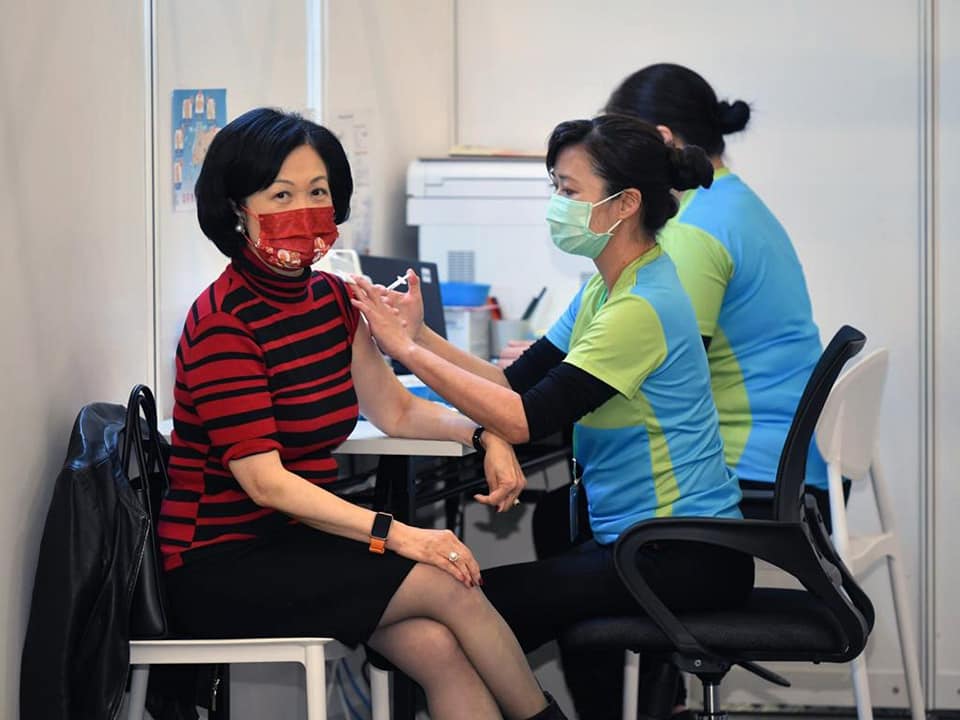
However, the government said there is limited information on how well the vaccine works on those aged 60 or above because of the small sample size during tests. Six people in Hong Kong have died after receiving the Sinovac jab but experts have said there was no link between the vaccine and the death in the first two cases, while the others are still being investigated.
Additionally, the Hong Kong government approved the use of Sinovac before the World Health Organisation (WHO) did. Officials said that they would reconsider their approval of the use of Sinovac should the WHO recommend otherwise.
There is a lack of sufficient data on whether Sinovac is safe during pregnancy or breastfeeding.
Pfizer-BioNTech: The Pfizer-BioNTech vaccine shows an efficacy rate of 95 per cent and the WHO approved it for emergency use last December for people aged 16 or older.
BioNTech’s vaccine is not routinely recommended for women who are pregnant or breastfeeding.
How many doses of vaccine will I need? Is it free?
To be considered as “fully vaccinated,” adults have to receive two doses for both Sinovac and BioNTech’s vaccines, while children aged between 12 and 17 have to take one jab.
Vaccines are free of charge.

For Sinovac, the second dose of the vaccine should be given 28 days after the first dose, and for the BioNTech vaccine, there should at least be a 21-day interval.
After the first dose, people will be given a physical copy of their vaccination records. An electronic version will also be available for download via the “iAM Smart” or the “eHealth” mobile applications.
The vaccination programme has also been expanded to dose out booster jabs for eligible persons.
For adults, a third jab should be given at least six months after the second dose. As for those who are immunocompromised, the government “strongly recommended” that the third dose to be taken 28 days after the second dose.
As for children aged between 12 and 17 who received a dose of BioNTech vaccine, they are eligible for a second booster shot 12 weeks after their first jab.
Who is eligible for a Covid-19 vaccination?
Anyone aged 5 or above is eligible for vaccination.
Non-residents are also eligible for the vaccines. Holders of Two Way Permits, non-refoulment claimants and refugees, and travellers in Hong Kong who can complete the two doses during their stay can also receive Covid-19 vaccines.
How and where can I get vaccinated?
There are different avenues for vaccination but some will only provide one type of vaccine. People can choose according to the type of vaccine they want, when-and-if different options are available.
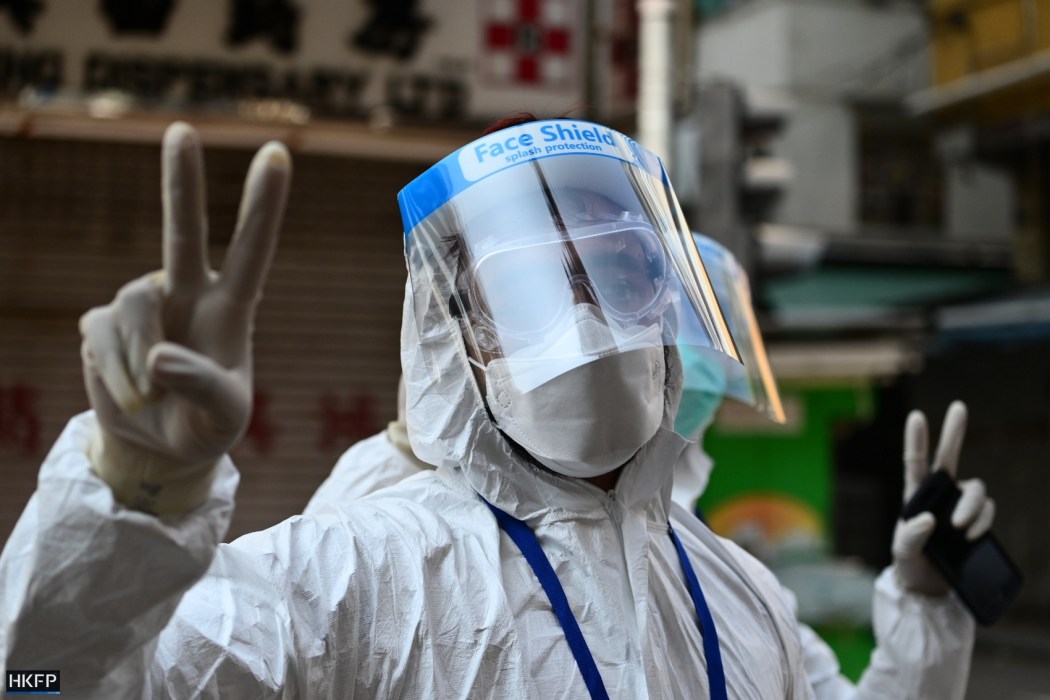
Community Vaccination Centres (CVCs): there are currently 14 CVCs open to the public. Three centres will provide Sinovac, while the remaining 11 will provide the BioNTech vaccine.
Residents can register using a 24-hour online system, or get “same day tickets,” which allow people to get vaccinated at a designated timeslot on the day.
Most CVCs open from 8am to 8pm every day. People must bring their identity card, and the letter or message confirming their appointments if a booking was made.
Clinics: People can also get Sinovac at one of the 14 clinics operated by the Hospital Authority. Registration is required. Over 1,500 private clinics also provide Sinovac, with eight medical groups also providing BioNTech.
Vaccination stations: People can also get their jabs at vaccination stations at 13 public hospitals, which only provide BioNTech jabs, or at one of the mobile vaccination stations.
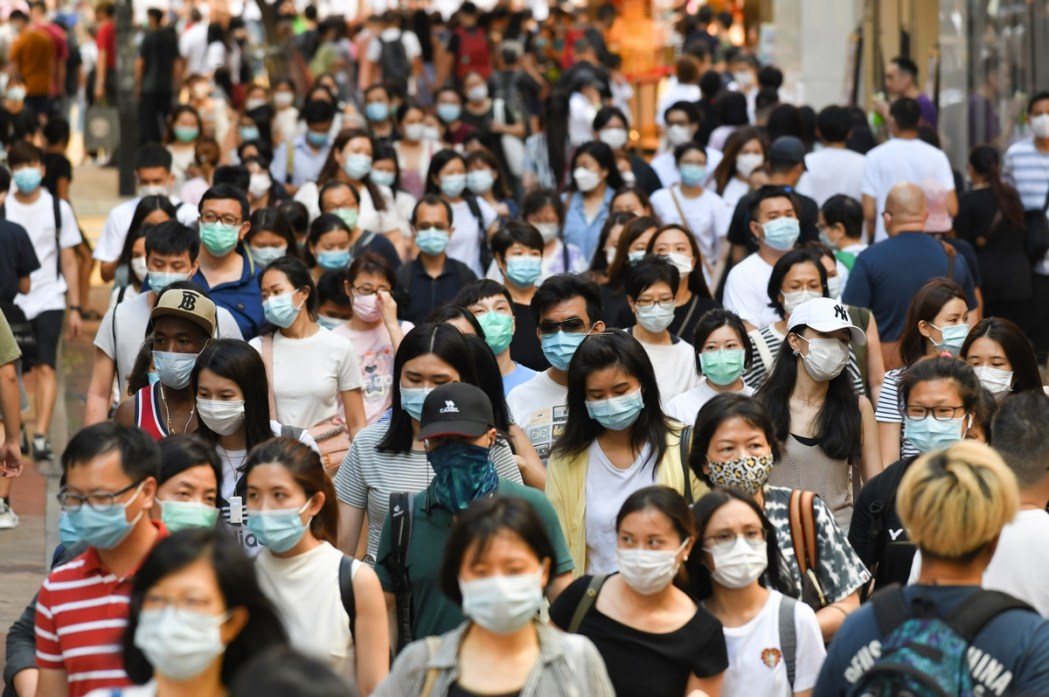
The government will also arrange for medical workers to visit care homes and elderly homes to vaccinate residents on site.
What if I experience side effects?
There are several common side effects such as headaches, tiredness, pain, swelling and redness at the injection site.
In rare cases, people (one in 1,000 vaccinated) may experience temporary one-sided facial drooping after taking the BioNTech vaccine, while 0.01 to 0.1 per cent of people may experience side effects such as muscle spams, abdominal distension and hot flashes after being vaccinated with Sinovac.
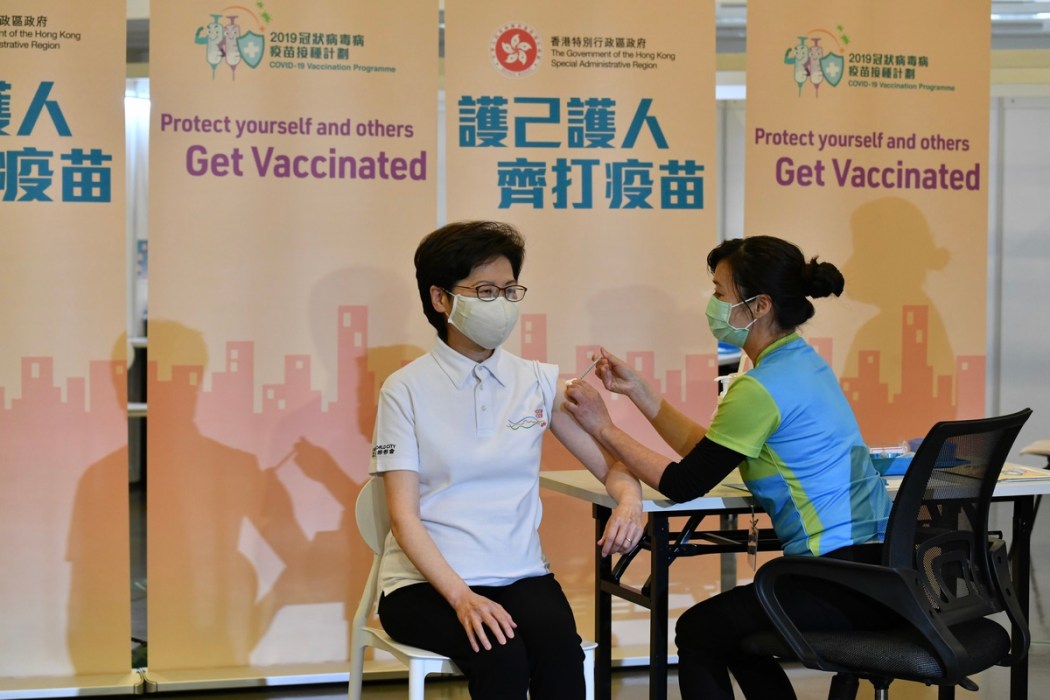
The Department of Health has established a reporting mechanism for people experiencing adverse effects after vaccination. Citizens can alert healthcare professionals should they experience serious side effects.
The government has sought HK$1 billion from the Legislative Council (LegCo) for an indemnity fund. According to LegCo documents, victims of serious side effects or relatives of those who die because of the vaccine may be eligible for compensation of up to HK$3 million.
Can I travel freely after being vaccinated? Do vaccinated arrivals still need to quarantine?
Not quite yet. The International Air Transport Association (IATA) says it expects a digital “Covid Travel Pass” to be ready within weeks, which may allow vaccinated persons to travel more freely.
Hong Kong has not announced any new rules for vaccinated persons arriving in Hong Kong – they will still have to quarantine at a hotel for up to three weeks.
Support HKFP | Policies & Ethics | Error/typo? | Contact Us | Newsletter | Transparency & Annual Report | Apps
Help safeguard press freedom & keep HKFP free for all readers by supporting our team



